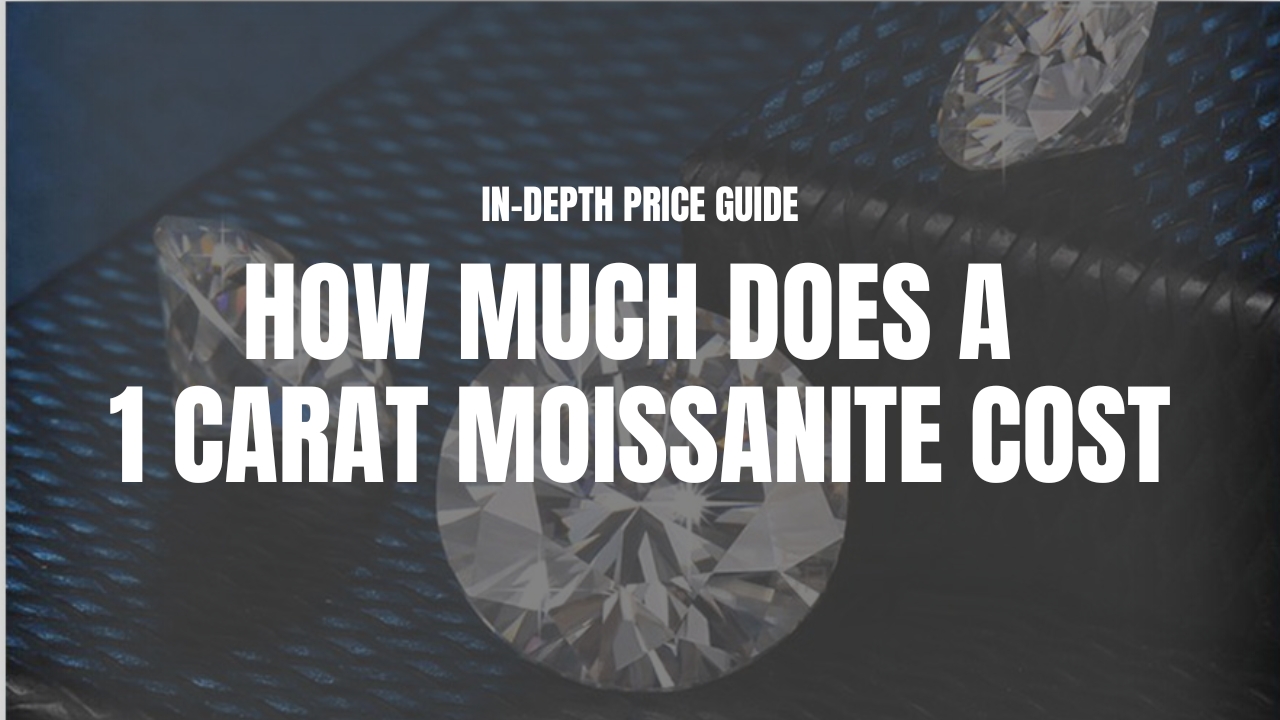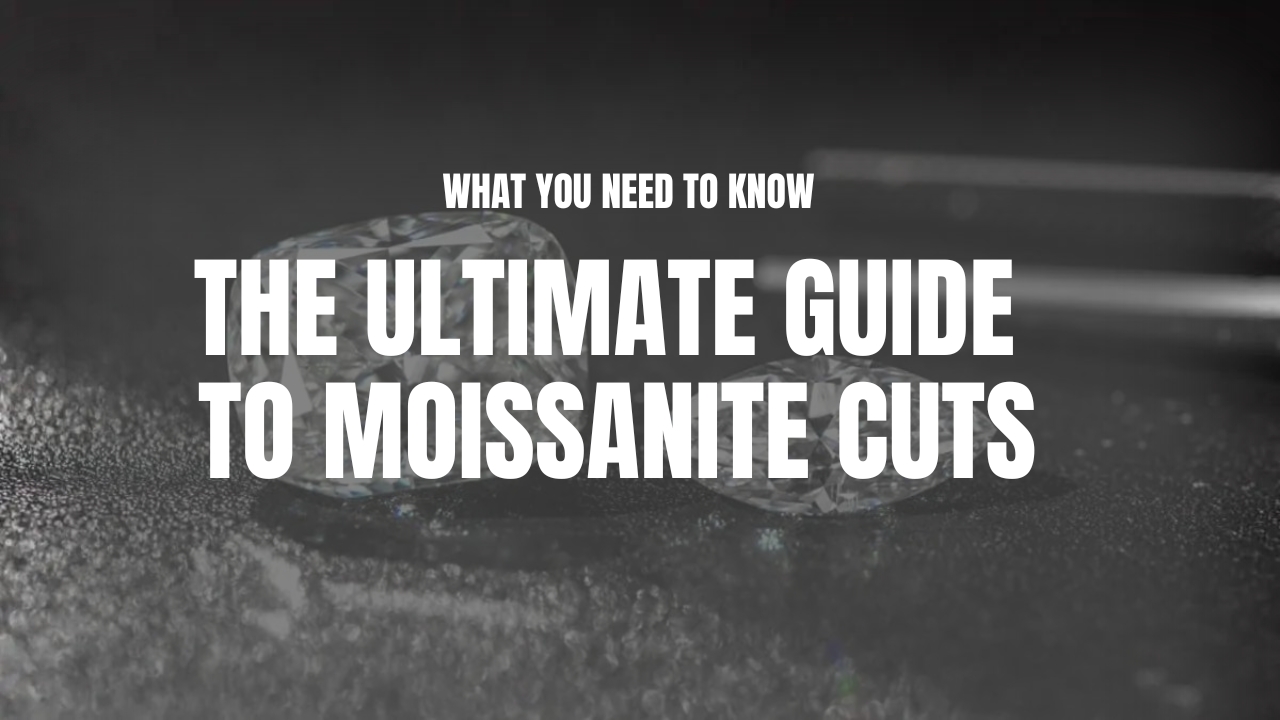

Can Moissanite Pass the Diamond Tester? Discover the Truth!
In this article we're going to look into:
When considering fine jewelry, especially moissanite, a common question arises: Can moissanite pass the diamond tester? The answer might surprise you. While both diamonds and moissanite have unique properties, advanced gemological tools can help distinguish between them. Let’s explore whether moissanite can fool a diamond tester and understand the key differences between these two stunning gems.
What is a Diamond Tester?
A diamond tester is a device designed to determine whether a gemstone is a diamond. It works by analyzing the thermal or electrical conductivity of the stone. Since diamonds have specific physical properties, they conduct heat and electricity differently than other gemstones. However, newer diamond testers have evolved to detect diamond simulants, like moissanite, more accurately.
Types of Diamond Testers
Different types of diamond testers are available, each with its own method of determining the authenticity of a stone. Here’s a breakdown:

❖ Diamond Tester Pens
These handheld devices are popular for quickly identifying diamonds. They work by measuring electrical conductivity, and when applied to the stone, they give a clear indication (usually with a light or sound) of whether the gem is a diamond. While they are widely used, moissanite can sometimes produce a false positive result.
❖ Thermal Conductivity Testers
Diamonds have high thermal conductivity, meaning they disperse heat efficiently. Thermal testers measure how fast a stone conducts heat, and diamonds will quickly show their true nature with this method. However, moissanite also has high thermal conductivity, which means it can sometimes register as a diamond on this type of tester.
❖ Electrical Conductivity Testers
Diamonds are poor conductors of electricity, unlike many diamond simulants. Moissanite, however, is electrically conductive. This difference can help distinguish between diamonds and moissanite when using electrical testers.
❖ Ultraviolet (UV) Testers
When exposed to ultraviolet light, diamonds emit a glowing light known as fluorescence. While moissanite can also fluoresce, the color and intensity differ. This makes UV testers a useful tool, but they are not always the most accurate.
What is Moissanite?
Moissanite is a rare mineral first discovered by Dr. Henri Moissan in a meteorite crater in Arizona. While natural moissanite is incredibly scarce, scientists have been producing synthetic moissanite in laboratories since the late 1990s. Moissanite is composed of silicon carbide (SiC), giving it exceptional brilliance and durability.
Moissanite vs. Diamond: Key Differences
Although moissanite and diamonds may look similar at first glance, they have distinct differences. Below are some key attributes that set them apart:

❖ Composition
Diamonds are made entirely of carbon, whereas moissanite is composed of silicon carbide. While diamonds form naturally under immense pressure deep within the earth, moissanite is mostly created in labs due to its rarity in nature.
❖ Hardness
Diamonds are the hardest known natural material, scoring a perfect 10 on the Mohs scale of hardness. Moissanite, while extremely durable, ranks slightly lower at 9.25. This makes both gems suitable for daily wear, although diamonds are more resistant to scratches.
❖ Brilliance & Fire
Moissanite is famous for its remarkable brilliance, even surpassing diamonds in this area. Its higher refractive index means it disperses light more dramatically, giving off rainbow-like flashes. Diamonds, while also brilliant, tend to emit more icy-white light.
❖ Color
While diamonds are typically prized for their colorless appearance, moissanite can sometimes display a subtle yellow or green hue, especially in larger stones or under certain lighting.
❖ Cost
One of the most significant differences is the price. Moissanite is a more affordable alternative to diamonds, offering a similar sparkle at a fraction of the cost.
Can Moissanite Pass the Diamond Tester?
Due to its high thermal conductivity, moissanite can sometimes pass a thermal diamond tester. This can lead to confusion, as the tester may indicate that the moissanite is a diamond when it’s not. However, when more advanced testing methods, like electrical conductivity or ultraviolet testing, are used, the differences between moissanite and diamond become clear.
Why Choose Moissanite?
❖ Value for Money
Moissanite offers the look of a diamond without the high price tag. This makes it an excellent option for those seeking beautiful jewelry without the hefty cost.
❖ Eco-Friendly & Conflict-Free
Since most moissanite is lab-created, it is considered an environmentally friendly and conflict-free alternative to mined diamonds.
❖ Unmatched Brilliance
For those who love sparkle, moissanite’s higher refractive index makes it the most brilliant gemstone available.
Frequently Asked Questions

❖ Will Anyone Know My Ring is Moissanite?
Moissanite’s unique rainbow brilliance might give it away to the trained eye. However, to most people, it will look similar to a diamond at first glance.
❖ Do You Get a Certificate with Moissanite?
Yes, just like diamonds, moissanite can come with a certificate grading its quality based on the 4Cs (color, clarity, cut, and carat weight).
Final Thoughts
Moissanite can pass certain types of diamond testers, particularly those that measure thermal conductivity. However, when other gemological tools are used, moissanite reveals its true nature. Both moissanite and diamonds are exceptional in their own right, and the choice between the two ultimately depends on personal preference, budget, and values.
At ICEDLANK, we specialize in offering premium moissanite jewelry that combines stunning brilliance, affordability, and ethical sourcing. All our moissanite pieces come with a certificate of authenticity and are designed to last a lifetime. Whether you’re looking for a moissanite engagement ring or another fine jewelry piece, explore our collection to find the perfect fit for you.
In this article we're going to look into:
Moissanite is often chosen as a diamond alternative for several reasons:


